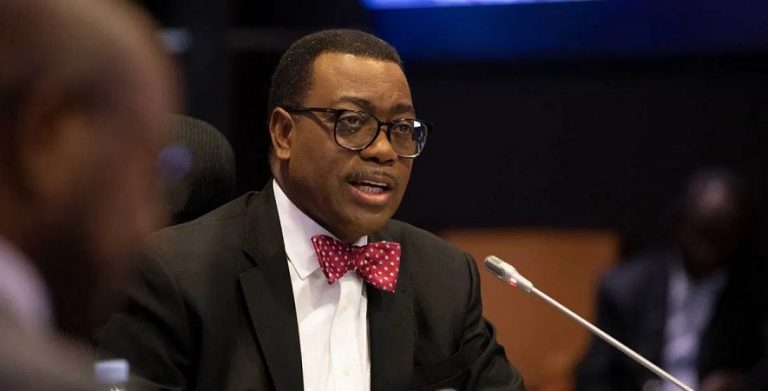
In a country teeming with youth and innovation, where nearly every street corner tells a story of ambition waiting to bloom, Akinwumi Adesina, President of the African Development Bank (AfDB), has offered a blunt verdict on the financial system that governs it: it was never meant for the youth.
Speaking on Channels Television on Thursday, Adesina, a former Nigerian Minister of Agriculture and one of Africa’s foremost economists, did not mince words. He accused commercial banks in Nigeria and across the continent of systematically shutting the doors on the very generation that carries Africa’s future in its hands.
A System Built for the Old, By the Old
Adesina’s critique goes beyond surface-level complaints about difficult loan procedures. He paints a picture of a banking system whose architecture is fundamentally rigged against young people—one that treats youthful ambition as a liability rather than an asset.
Register for Tekedia Mini-MBA edition 19 (Feb 9 – May 2, 2026).
Register for Tekedia AI in Business Masterclass.
Join Tekedia Capital Syndicate and co-invest in great global startups.
Register for Tekedia AI Lab.
“You walk into the bank, and you see young people, 21 years old, coming in. In your risk assessment, the only thing you see is risk, risk, risk,” Adesina said. “And so you go ask them for securities that they need to bring to you—‘do you have a house, do you have a land, do you have tax for the last 40 years?’ But they’re only 21 years old.”
For most young Nigerians, these demands aren’t just steep—they’re impossible. Many are just emerging from university, hustling through the country’s ballooning unemployment and underemployment crisis, trying to turn coding skills, fashion design, or agritech ideas into tangible enterprises. But when they turn to banks, they are told to return with what they don’t have – collateral.
465 Million Youths, One Broken System
Adesina’s frustration stems from the sheer scale of the problem. Africa is home to more than 465 million young people between the ages of 15 and 35. In Nigeria alone, youth account for over 60 percent of the population. And yet, the financial sector across much of the continent continues to operate on outdated risk models and rigid credit structures that ignore the continent’s evolving demographic realities.
“The commercial banking system, the financial system, has failed young people in Africa,” he said, putting the matter plainly.
It shows every day in the statistics of failed startups, in the stories of dreams deferred, and most visibly in the growing wave of youth emigration, now widely known in Nigeria as the “japa syndrome.” For Adesina, the brain drain isn’t just a tragic consequence of bad governance, it’s a reflection of a system that refuses to back its youth.
No More Freebies. Fund Ideas, Not Slogans
One of the more striking elements of Adesina’s comments was his rejection of tokenistic government and NGO-run youth programs that often dominate headlines but deliver little in actual support.
“First and foremost, is to recognize that young people don’t need freebies,” he said. “We don’t need people just saying, ‘Oh well, I just want to give you a youth empowerment program.’ What does that mean?”
According to Adesina, the real solution lies in access to capital, and not as a handout, but as a real investment. He urged banks to abandon the conservative thinking that sees youth as high-risk by default and to embrace bold, strategic investments in their ventures.
“They need capital. They need you to put your money at risk on their behalf,” he said, calling for a rethink of risk assessment models that currently penalize innovation.
Why This Matters Now
Adesina’s remarks come at a time when Nigeria is struggling to curb rising unemployment, with youth joblessness hovering around 53 percent, according to estimates from local economists. The country’s micro, small, and medium enterprises (MSMEs) are considered its economic backbone, yet many of them operate informally or remain stunted due to a lack of financing.
The Central Bank of Nigeria (CBN) has, in the past, rolled out credit schemes targeting youth and SMEs. However, many such programs have faced implementation bottlenecks, corruption allegations, or have been mired in political patronage.
Adesina’s comments suggest that unless commercial banks, not just central authorities, step up to back the next generation, the country risks losing both its workforce and its entrepreneurial spark.
The AfDB President’s message is as much a challenge as it is a condemnation. For Nigerian banks that post billions in profit annually while offering little to the country’s young, he is calling for a shift not just in policy, but in mindset.
“Rethink your risk models,” he said. “Invest in the future. Our people are our greatest asset.”
Adesina’s words come as more young Nigerians weigh the option of fleeing to countries with friendlier climates for talent and capital. His call is expected to stimulate action, not just the banks, but an entire ecosystem that seems unwilling to bet on the very people who could transform it.



